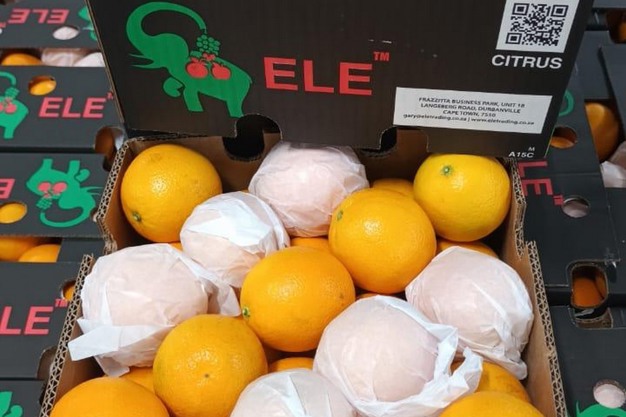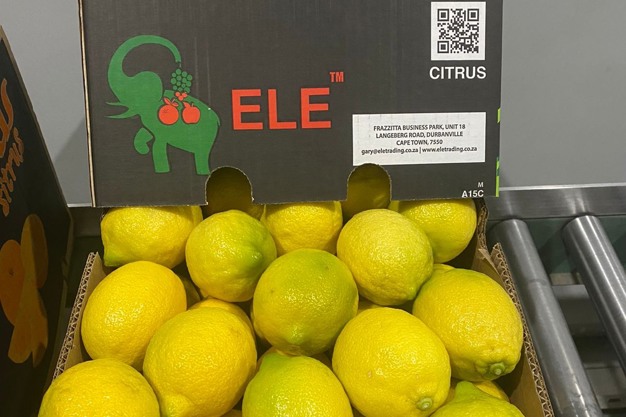"The fruit industry remains interesting and even more challenging nowadays with the external threats that have increased tremendously". So says Gary Britz, Managing Director of the South African Fresh produce exporter ELE™ Trading, based in Cape Town.

"Comparing our 2014 Swot analysis to one we just did in 2024, it is radically different, there's just so many more threats. There's the Covid effects, higher shipping rates, port challenges, El Niño, issue in Gaza, Ukraine, fertiliser price increases. On top of it, cash flow has become such a big thing. Trying to get receivers to commit to pay, it's tough. Everyone is in a cash flow crunch. Receivers are dragging their feet, if you have them on board, they want new terms. This industry is very difficult, especially if you are a medium to small exporter. It is very hard to get that commitment for stock. We're up against a lot of things," he explains.
South African citrus season off to slower start
"We badly need rain and colder weather, which we have not really had in the Western Cape. The warmer weather is a big problem, it delays colour and attracts insects, small fruit is an issue. In the North of the country, they had a lot of rain that had a big effect on the early lemon crop. The latest CGA stats show a good volume of lemons going out. For the other citrus, it is slow and a bit delayed. It's like starting a second-hand car that has not kicked into gear yet. The first vessels to US have been loaded, Canada is still up and going, they are not shouting over the phone for stock, but it's going. In Europe, there are still a lot of lemons around, from Spain. In Southeast Asia there are a lot of lemons from China, also in Hong Kong. In the next month or two, it will come to an end. This has affected lemon shipments and prices. SA navels are coming, while Egypt is still sitting with a lot of Valencia stock. Therefore, from here people must be careful of the quality of what they send," says Britz, as he sums up the start of the season.
He says markets have changed a lot in their preference and prices they pay for different citrus types. "In China Star Ruby demand has decreased with prices dropping over the last up to 8 years, which is concerning. Prices dropped almost to reach production level cost. There is always a concern with the volume of soft citrus plantings, which are staggering. It is interesting to see how they will perform over next two to three years; people claim it's taking shelf space of oranges. The question is what we do with the huge volume of class 2 stock, with between 15-20%. A lot of the marginal late older varieties are going to take strain against some of the newer ones."

Britz, who is also on the board of the exporters body FPEF, says the South African infrastructure has not improved at all. Equipment issues and delays remain in Durban port. The terminal take over by a private company is stalled in court. Meanwhile, the CGA Vision 260, with South Africa growing from 180 million cartons to 260 million is not that far away, it is only eight years away, notes Britz. "For the privatisation of rail, people are waiting for elections to commit. It all depends on who wins the elections."
"We have concluded that we are not in the fruit export business, but in the risk management business. It is all about security of supply and management of risk, that's very clear. That's what we must focus on. You need to have reliable receivers who are creditworthy. If you don't get paid for one or two containers, you are dead," warns Britz.
Britz concludes by saying, "as a small fruit exporter, our hope is to survive and still be in business by managing our risk."
For more information:
Gary Britz
ELE Trading
Tel: +27 21 976 0604
Email: gary@eletrading.co.za
www.eletrading.co.za

